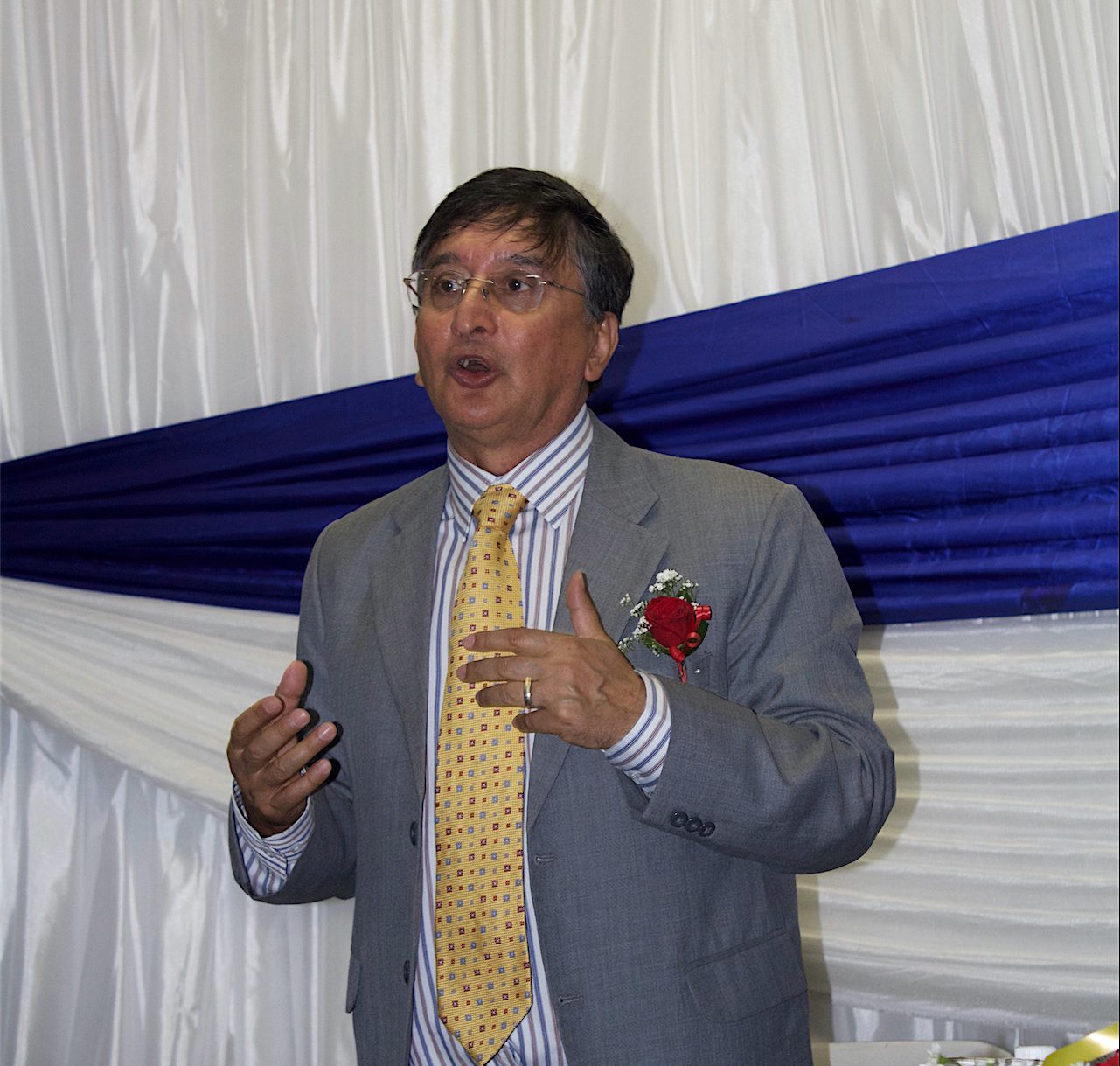
The Insight into the UN System and its On-Going Reforms
Mr Parajuli highlighted the workings of the United Nations (UN), stressing the ongoing administrative reforms under the Delivering as One Model and focusing on how the various UN organs are making a difference in the lives of the most vulnerable people in Zimbabwe and the World. In his presentation, the UN Charter of 1945 was identified as the foundational document of the UN and encouraged all individuals to familiarize themselves with the Treaty, particularly Article 55 which promotes the principles of higher standards of living, full employment, and conditions of economic and social progress and development; solutions of international economic, social, health, and related problems; and international cultural and educational cooperation; and, universal respect for, and observance of, human rights and fundamental freedoms for all without distinction as to race, sex, language, or religion.
The Resident Coordinator (RC) also expounded on the national context of UN in Zimbabwe. The UN delivers approximately USD400 million per annum under the Zimbabwe United National Development Assistance Framework (ZUNDAF). It works closely together with the government of Zimbabwe so as to link with its priorities and a cross section of ministries to deliver its mandate under the ZUNDAF Programme which focuses on six key areas which are in line with ZimAsset: Food & Nutrition Security, Gender Equality, HIV & AIDS, Poverty Reduction & Value Addition, Public Administration & Governance, and Social Services and Protection. Mr Parajuli emphasized the work that was being done to assist over 450 million victims of the drought in Zimbabwe, stating that so far, the UN had helped 100 million people in the worst hit areas and that the UN was in the process of mobilizing a further USD350 million to assist El Niño victims.
It is against this background that Mr Parajuli then tackled the question of the UN Security Council and the obstacles and opportunities in its reform. The two key issues he raised were as follows:
Reform within the UN is an ongoing process and that it is for the Member States to agree on what the reform should be and not the UN. Currently under discussion are among other matters, the issue of Membership Categories, The Veto Powers, Regional Representation, the size of an enlarged council, the Council’s way of work and how it relates to the General Assembly.
The question of UN Security Council Reform is a hot topic, hence there are other non-political issues that deserve an equal platform and attention and it is these issues on which the international actors should focus on.
The RC also outlined the effectiveness of the ‘African’ voice within the reform discussions. He highlighted the fact that there are 53 nations within Africa and the notion was there is one ‘African voice’ is misconstrued. Instead, history and record will show that often, there are divergent views within the continent on what reform should look like and that these divergent views mean that there is no critical mass of member states who do want change and from a continent’s perspective, this further limits the effectiveness of any regional or block position.
In conclusion, Mr Parajuli said that the bottom line that concerns us all is Peace; and that Peace is not brought about by a seat on the UN Security Council but rather, by nations ensuring that the tenants of Equality – progress, prosperity and human rights are upheld. And it is the ethos of the creation of a level-playing field that the UN Charter and the UN’s work in Zimbabwe are focused.
Zimbabwe Institute of Diplomacy
